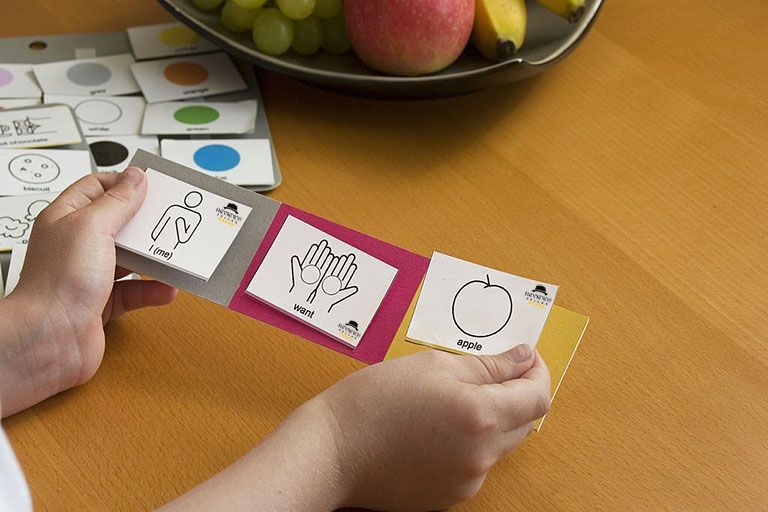This article is reviewed, corrected, and approved by: Julia Weiss CNP| RN | MPH
When it comes to caring for a child with autism, the decision of which treatment to pursue can be daunting. In recent years, ABA therapy has grown in popularity as a preferred option for people with autism and other related disorders. In this informative article, we’ll discuss ABA therapy's pros and cons and provide guidance on how to decide what’s best for your child.
Despite being a trendy treatment for autism, ABA therapy has both advantages and problems that should be considered. If you're considering ABA therapy for your child, it's necessary to evaluate the pros and cons of this treatment before deciding what's best. We'll explore ABA therapy's pros and cons and discuss how to choose the right treatment for your child.
ABA Therapy: What is it?
If you are looking for effective treatment options for developmental disorders like autism and down syndrome? ABA therapy might be the answer! Using direct behavioral strategies, this therapy helps individuals develop skills, improve behavior, and enhance their overall quality of life.
Positive reinforcement is a popular behavior modification approach that uses rewards or positive feedback to encourage the recurrence of desired behaviors. ABA therapy is an effective and commonly used treatment for autism, but it isn't without its pros and cons.
If you're considering ABA therapy for your child, it's important to weigh both the positive and negative aspects of this treatment before deciding what's best.
ABA therapists use behavior patterns and reinforcement patterns to shape and maintain desired behaviors. Depending on the individual's requirements and preferences, the goals of ABA therapy can differ. Common goals include developing communication, self-care, leisure, and social skills.
ABA therapy can also be used to address problem behaviors and to help teach children how to manage their emotions more effectively. ABA therapists use various tools to assess the individual's behavior, such as conducting interviews and observations, collecting data, and creating individualized plans for the individual.
ABA therapists may also provide counseling or consultation services or refer individuals to other professionals who specialize in Applied Behavioral Mental Health Counseling (BASS ABA Therapy) or other therapeutic services.
It is crucial to find an experienced and qualified ABA therapist who is familiar with your particular situation and can provide you with the best pattern of behavior services and therapy for your needs. To find an ABA therapist near you, search online or ask your healthcare provider for a referral.
Pros And Cons Of ABA Therapy
Pros of ABA Therapy
ABA therapy priorotizes on teaching new skills and changing behaviors and is a successful treatment option for people with autism spectrum condition (ASD). It uses positive reinforcement, which encourages desired behaviors while decreasing undesirable ones. Using the ABC model, ABA therapists can effectively identify, assess, and modify an individual's behavior.
As a result of its individualization, ABA therapy has a number of advantages. This makes it a highly personalized treatment designed to meet the individual's goals in the best way possible. Social skills are improved, independence is increased, and communication is improved with ABA therapy.
Benefits of ABA therapy

- Evidence-based: Other developmental disorders can also be effectively treated by ABA therapy.
- Customized Treatment: Treatment plans are designed to address specific goals and behaviors, and ABA therapy is modded to the individual needs of the child.
- Reduced Problematic Behavior: ABA programs have been linked with decreases in self-injurious behavior, anger, and violence. ABA therapists are able to improve emotions and reactions in children with ASD by identifying the triggers and teaching alternative, more positive behaviors.
- Promotes Positive Behavior: ABA therapy can improve a child's development by focusing on reinforcing positive behavior and teaching new skills.
- Structured Learning: Children who have difficulty transitioning and adjusting to changes in routine may benefit from ABA therapy, which uses a structured and consistent approach to teaching and learning.
- Generalization of Skills: This can help children with ASD apply their newly acquired skills to different environments, and not just in the therapy setting.
- Behavior reconstruction: This therapy simplifies complex behaviors and motivates desirable actions with positive reinforcement. Through ABA therapy, positive reinforcement techniques are used to teach and practice the skills necessary for children with ASD to communicate and interact with others.
With ABA therapy, children with ASD can develop stronger communication skills and social abilities by breaking complex behaviors down into smaller, easier steps.
- Parent Involvement: Parents are encouraged to participate in ABA therapy and are taught strategies and techniques for reinforcing positive behaviors at home.
- Promotes Self-Dependency: ABA therapy also focuses on increasing independence and self-sufficiency in children with ASD. By teaching self-care and daily living skills, such as brushing their teeth, getting dressed, and using the bathroom independently, ABA therapists can help children become more self-reliant and confident in their abilities.
If you are one of those parents and are confused about to choose which treatment option for your child will be effective, many options exist. You can search for "ABA Therapy near me" to find certified therapists in your area who specialize in this form of treatment. Getting to know your child's needs and finding the right therapist can help you find one.
Cons of ABA Therapy

When it comes to treating autism with applied behavioral analysis (ABA), there are both pros and cons to consider. There are some disadvantages to this treatment method, particularly with regard to a child's emotional well-being.
Here are some cons of ABA therapy are:
Time-Consuming: Both parents and children must commit a significant amount of time to ABA therapy.
The time commitment associated with ABA therapy is also important to consider. A certain amount of weekly treatment time is required from both the therapist and the patient, which may be difficult for some families due to school and work commitments.
May be Expensive: Parents should be aware that not all insurance companies cover the bill of ABA therapy. ABA therapy can be rather costly than other treatments. According to the specific situation and how long it takes to achieve the desired results, therapy costs might be expensive sometimes.
Repetitive: Children who repeat certain activities and exercises may lose motivation or become resistant to therapy because they become bored or frustrated.
May not Address Underlying Causes: In spite of the fact that ABA therapy can be effective in changing behavior, it may not address underlying medical or psychological problems that are contributing to the behaviors of the children.
Controversial: In addition to being controversial, ABA therapy is controversial because it places more emphasis on compliance and normalization than on accepting and accommodating the differences of those on the autism spectrum.
Finally, ABA therapy does not always guarantee success. Even with dedicated therapists, individuals may still struggle with reaching their desired goals or may find it difficult to maintain the progress they make.
Alternatives To Aba Therapy

Here are some alternatives to ABA therapy:
- Cognitive-behavioral therapy (CBT)
- Relationship-based (DIR) therapy
- Peer-mediated interventions
- Picture Exchange Communication System (PECS)
- Art therapy
- Social Stories and Comic Strip Conversation
- Music therapy
- Floortime, or Developmental therapy
- Mindfulness-based interventions
- Speech therapy
- Sensory Integration Therapy
- Play therapy
- Occupational therapy
- Animal-assisted therapy
- Functional Communication Training (FCT)
Tips for Choosing the Right Developmental Approach for Your Child

Choosing the best treatment for a child with autism requires considering both the pros and cons of each option. In recent years, applied behavioral analysis (ABA) therapy has been a popular choice. However, every parent needs to do thorough research and choose the right treatment for their child by considering all the benefits and drawbacks related to the treatment or making the right decision.
Here are some tips for parents before deciding on the best developmental method for their child:
Firstly, speak with a qualified professional who is trained in ABA therapy and autism treatment. ABA therapy and its effectiveness can be explained by them. Make sure to ask as many questions as possible to gain an understanding of the potential risks and benefits of ABA therapy.
Secondly, set clear therapy goals with your child's healthcare team to achieve optimal outcomes. ABA therapy should focus on reducing or eliminating challenging behaviors while developing adaptive behaviors. The goals should be customized to meet your child's individual needs, abilities, and preferences.
Finally, the most important thing when considering ABA therapy, ensure to look at the qualifications of the staff providing the service. It is necessary that the therapist has experience working with children with autism and has a comprehensive understanding of ABA theory and practice. Furthermore, make certain about any additional support your child may need and how it will be provided.
Overview
On the positive side, you can enhance your child's general condition easily with ABA therapy - personalized to their needs, promoting positive behavior, and involving parents for maximum progress. It uses a structured approach to teaching and learning, which can be beneficial for children who struggle with adapting to changes in routine may find it challenging.
On the negative side, ABA therapy can be time-intensive, expensive, and may not address underlying medical or psychological issues. It may also become repetitive for the child, leading to a lack of motivation or resistance to participating in therapy.
Ensure the best decision for your child - carefully weigh ABA therapy pros and cns, consider their needs and preferences, and seek professional advice. Finally, the decision should depends on what is most beneficial to your kid and their specific circumstances.
Conclusion
Finally, I feel that parents must remember that each child is unique and that some strategies might work for some children while others will not. It's important to thoroughly explore all possible choices before making a decision.
Speak with professionals, and weigh out the pros and cons of each treatment before making a decision. The decision on the best option for your child is in your hands.
The potential benefits of ABA therapy include improved communication and social skills, reduced problem behavior, increased independence, and generalization of skills. Overall it can improve your kid's daily life activities. This therapy may benefit the lives of people and kids with ASD and their families.
Frequently Asked Questions (F.A.Qs)
Q: What are Patterns behavioral services?
Ans: Patterns Behavioral Services provides ABA therapy to people with disorders such as ASD (autism spectrum disorder). With positive reinforcement and behavior modification techniques, applied behavior analysts can help individuals assist in learning new behaviours, habit skills, and tactics while reducing challenging behaviors.
Q: Is aba therapy only for autism?
Ans: ABA therapy is primarily focused on autism. But lots of conditions are used in ABA, such as ADHD, intellectual disabilities, and other developmental or behavioral disorders.
Q: How can I locate aba therapy near me?
Ans: You may search through the internet and near hospitals and ASD therapy center
Q: What is bass aba therapy?
Ans: Dr. Ronald Bass created the Bass-ABA therapy as a modified type of ABA therapy. Child-centered naturalistic teaching strategies are used instead of traditional ABA, which emphasizes teacher-directed strategies. Play-based activities and peer interaction are also included in Bass-ABA therapy.
Q: What do they do in ABA therapy?
Ans: ABA therapy involves tactics such as positive reinforcement, prompting, and structuring to assist people with autism in learning new abilities and reducing troublesome behaviors.
Q: Is ABA therapy good for autism?
Ans: The effectiveness of ABA therapy for people with autism is a controversial topic, with some people emphasizing its advantages and others raising concerns about potential harm and ethical issues.
Q: Is ABA therapy harmful? Ans: The possible danger of ABA therapy for people with autism is a highly debated issue, with some claiming good outcomes and others expressing doubt.


